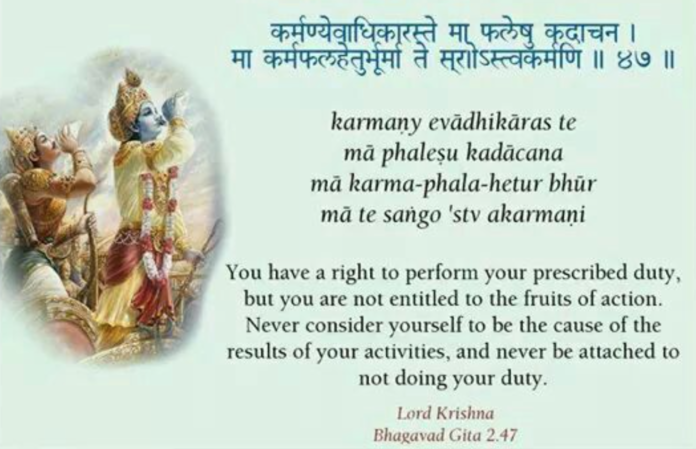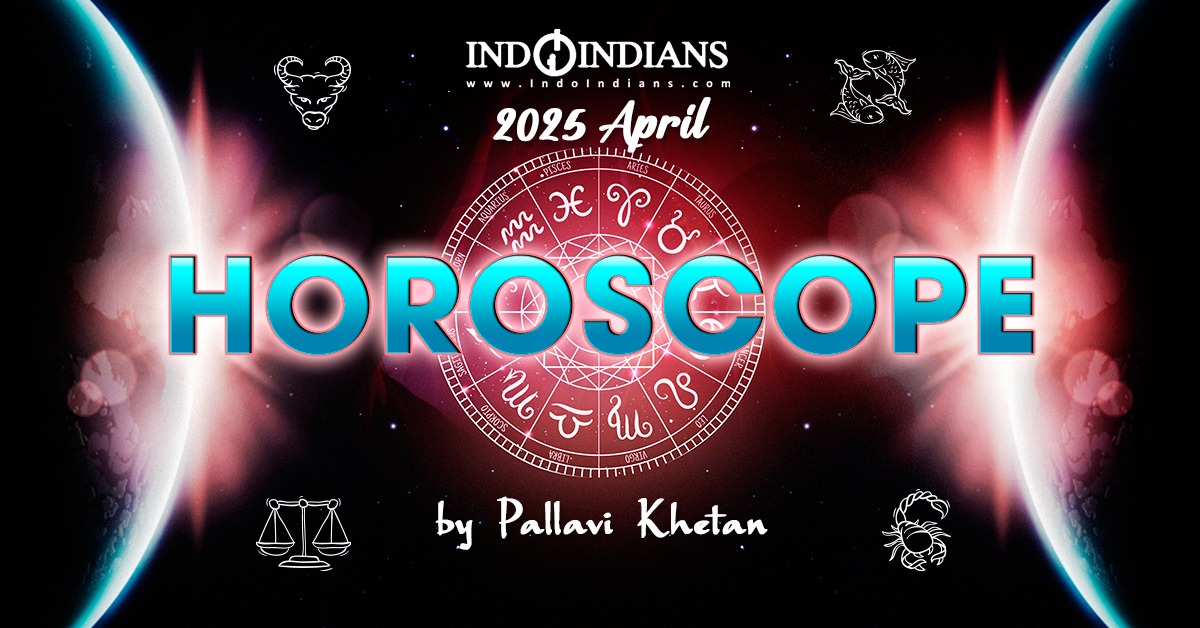A guidebook to life – Shrimad Bhagavad Gita
The Shrimad Bhagavad Gita or ‘The Song by God’, is a 700-verse and part of the epic Mahabharata. It is the discourse that takes place when a confused Arjuna turned to his charioteer, Lord Krishna, for advice before the start of the Kurukshetra war. The teachings by Lord Krishna helped change Arjun’s perspective about life and, thus, his life path. While the Gita is many centuries old, the logic and knowledge inherent in its every word, makes it a timeless guide.
“The Bhagavad Gita is a map and a guidebook the one that holds the key to personal transformation.” ~ Eknath Easwaran
The story behind Bhagavad Gita – relevance and symbolism
Bhagavad Gita takes place on the battlefield of Kurukshetra, upon which two sides of a family – the Pandavas and the Kauravas – are preparing for battle. The text itself is positioned around a conversation between two characters: Lord Krishna and Arjuna.
The message is timeless in the fact that it’s relevant whether we lived a thousand years ago, or we’re living in the modern age. We explore what happens when Arjuna has to make life-changing difficult decisions – specifically the decision as to whether he should battle against his own family members in a war of ‘good’ versus ‘evil’- and the importance of living a life of truth and purpose.
The most interesting and often misunderstood aspect of the Bhagavad Gita is that it’s entirely representational and highly symbolic. There is no real battlefield or fight to be won; the entire text is a representation of the battle that goes on in our minds and is an invaluable way to understand how we can overcome difficulty, self-doubt, and ultimately how to live a life of truth and purpose.
The characters
In order to get the most from the text, it’s important to understand what each character represents:
Arjuna: us in our human form, with all our doubts, worries and habits…. He represents you and I as we stand on the battlefield of life facing all the different parts of ourselves that prevent us from realising our true nature.
Lord Krishna: the ‘higher Self’ or ‘divine’.
The Pandavas: the great virtues within us.
The Kauravas: the opposing forces within us.
The Chariot: our physical body.
The Horses: our five senses that need to be skilfully guided and controlled by the Self in order for us to be able to realise our true nature.
Life’s ‘purpose’
Whatever we might consider our ‘life purpose’ to be, there’s one purpose we all have; to live life fully, to explore all there is to explore within and without ourselves and – as Siddhartha Gautama said – “to discover your world and with all your heart – give yourself to it”.
Life can often seem like a battlefield, but it’s also spoken of as a ‘drama’ in many of the texts, and when we look at it this way we can ask ourselves; “am I playing my part fully?” Are we each giving ourselves to our life and our world and living our purposefully?
The Bhagavad Gita encourages us to live life with purity, strength, discipline, honesty, kindness and integrity in order to find our purpose and to live it fully. Just as Krishna encourages Arjuna to cast aside all doubts and trust in his highest Self, we too can use the wisdom of the Bhagavad Gita to meet our own difficulties and decisions with fearlessness and honesty and learn to live life authentically and fully.
The Bhagavad Gita is ripe with practical solutions for challenges faced on a daily basis. In fact, the challenges faced by Arjuna in the battle of Kurukshetra is a metaphor for us humans navigating life day by day facing ethical and moral dilemmas. Here is how we can use the teachings of the Bhagavad Gita to fill our days with joy, empathy and productivity.
Focus on your work, not on the results is the message from Gita Chapter 2, Verse 47
“karmany evadhikaras te
ma phalesu kadachana
ma karma-phala-hetur bhur
ma te sango ’stv akarmani”
The most famous adage of the Bhagavad Gita is that we should focus on the task at hand, not on the outcomes – for we can only truly control our actions, while the results are a permutation of many different variables. Internalizing this concept in our day to day lives makes us more productive, as we can expend all of our energy into the task at hand without worrying about the results.
The Bhagavad Gita encourages us to live life with purity, strength, discipline, honesty, kindness and integrity in order to find our purpose and to live it fully.





